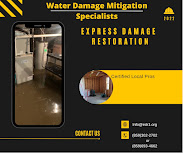What is mold remediation and how does it work?
Mold remediation is the process of identifying and removing unhealthy levels of mold that have colonized in a home, office, school or other building. This is known as returning to condition 1.
Condition 2 is settle spores from condition 3.
Condition 1 is defined as a normal indoor fungal ecology.
Over time, if untreated, mold can destroy a home by breaking down cellulose-based materials (like wood or ceiling tiles) and causing a slow and messy decay. In the shorter term, a mold colonization can cause severe health problems.
If mold has been positively identified in your house and levels are higher than the outside levels, either by visual examination or through mold testing, remediation can safely remove it. Properly trained and equipped professionals use specialized equipment (like hepa vacuums and air scrubbers with HEPA filters) to keep mold spores contained while they remove contaminated materials and treat colonized areas with antimicrobial spray.
Here's an example of the steps involved in professional mold remediation:
- Contain work area and apply negative air pressure HEPA (AFDs) to prevent cross-contamination. If spores spread, the colonies can easily regrow elsewhere in your home.
- Protocol from a professional mold Assesor will show where to place critical barriers, containment and AFDs.
- Hepa vacuum to capture spores to be took offsite and disposed of.
- Mist an EPA-registered antimicrobial to suspend and kill mold spores.
- Remove affected building materials.
- Bag and dispose of contaminated materials properly.
- Treat cavities/underlayment and dehumidify.
- Abrasively remove dead loose mold.
- Apply EPA-registered protective sealer.
- Perform post remediation verification clearance.
- Remove drying equipment.
A key component to a successful mold remediation or removal after eliminating the mold is ensuring that the water source that caused the mold colonization is also remediated.
If you think there's mold in your home, contact the best mold remediation experts
best mold remediation experts





Comments
Post a Comment
What to consider when choosing a fire and damage restoration company
Certified experts
It is imperative to make certain that the company in question has all the required state and local certifications to complete the restoration job. These certifications should also be up-to-date.
• Certification: Look for credentials from the Institute of Inspection, Cleaning and Restoration Certification, also known as the IICRC, for well-trained fire and water damage experts.
• Sub-certifications: The IICRC has additional specializations such as mold remediation or structural and commercial Drying. Ask the company for details about their sub-certifications.
• Restoration vs. reconstruction: Note that the IICRC refers to restoration, not reconstruction. If the damage is to severe that contractors are required to partially or completely rebuild/reconstruct properties, make sure that they have all the proper local licenses and certifications necessary.
Experience
Every disaster is unique and requires the utmost care. If a company begins operating from the wrong starting assumptions, it can prolong or completely derail the restoration project unnecessarily.
• Relevant experience: Make sure that the company providing restoration has dealt with many previous situations that are similar to the current task at hand. For example, standing water from a flood could become contaminated with chemicals or substances that make it a biohazard. Make sure the company knows what they are dealing with before they come out to avoid added confusion that slows down the job.
• Comprehensive evaluations: Don't hold back any information. Even details that don't seem to be significant initially can greatly impact the company's professional evaluation of the restoration requirements or the extent of structural damage.
Asset protection
Different kinds of materials - such as furniture, computers, floors, etc. - require different treatments under very specific timetables.
• High-priority assets: Decide which assets have the highest priority and then look for the company that specializes in that particular area.
• Practicality: Replacing property or recreating data may be less expensive than restoration. Don't compromise your practicality.
• Pre-inspection reports: Some types of leases require a pre-inspection report by qualified restoration personnel to establish insurability levels.
Time to recovery
Hours, and sometimes minutes, can make all the difference in what is recoverable. Make sure the company will be ready the moment disaster strikes.
• Rapid response: The first few hours after a disaster can make all the difference in terms of what is recoverable. Look for rapid response times. Also critical, is advice on what to do immediately and what needs attention within the first 24 hours.
• Schedules: Look for a company that can give a full, detailed schedule of steps that they will need to perform before an estimated completion date.
• Variable costs: Be prepared for costs to vary greatly based on factors that aren't obvious at first, such as structural damage and the extent of smoke damage.
Storage facilities
Some restoration companies offer storage facilities. Find out how much space the company has to house your undamaged assets and what their storage rates are.
• Storage conditions: Make sure that storage facilities are nearby and adequate in terms of factors like temperature control and security.
• Packing services: Ask if they provide packing services, which means that they can thoroughly clean property before packing it up and putting it into the company's storage facility.
• Record keeping: Make sure to take photographic records of the condition of your property before it goes into storage.
Referrals
Ask for names of commercial or governmental agencies that the company has worked for and look for referrals.
• Referral limitations: Don't discount a company just because its referrals aren't perfect. Some items simply aren't restorable, and that fact creates disappointment.